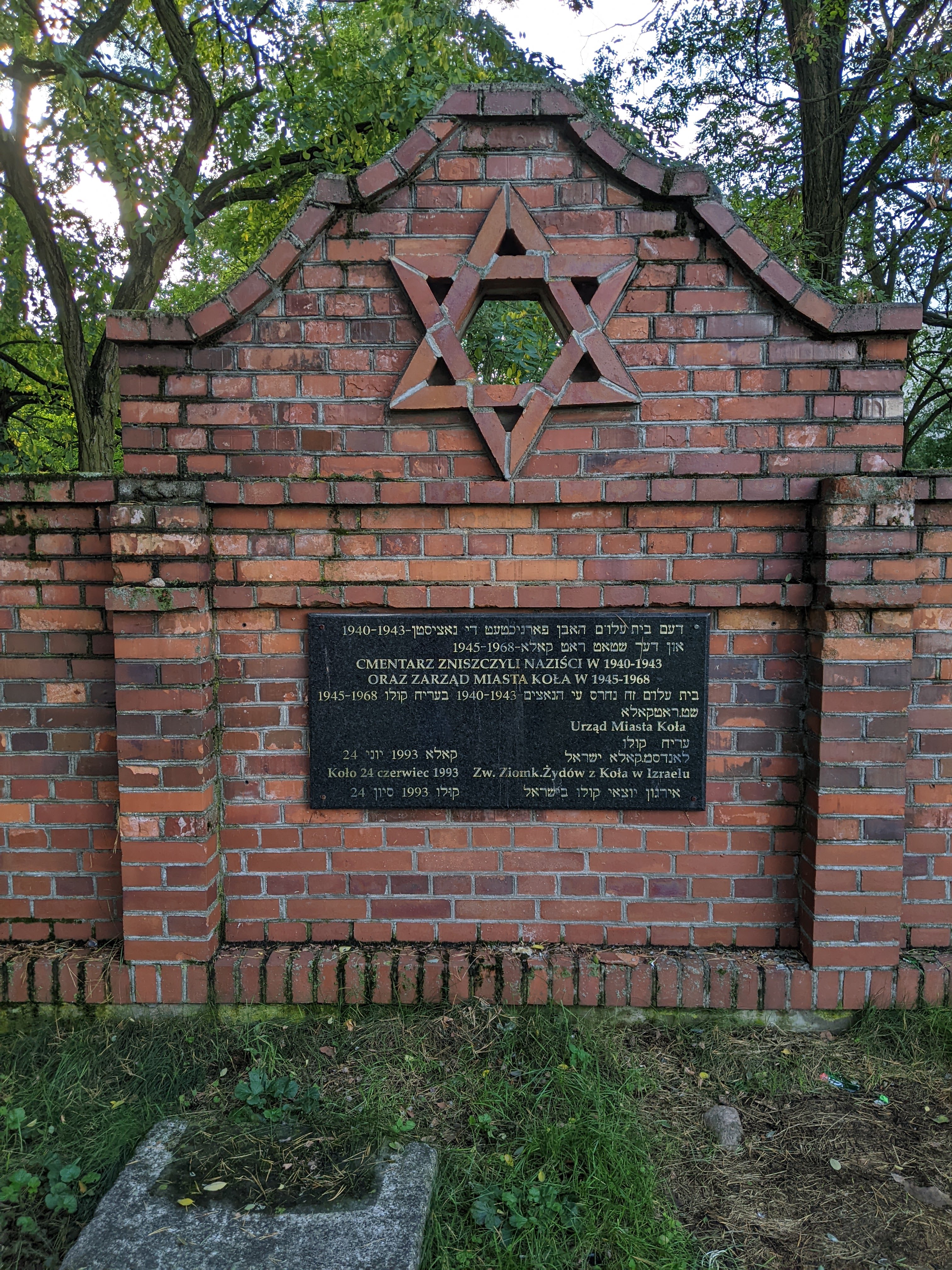
Our History
The concept of a regional organization of descendants developed out of founding member Leon Zamosc’s idea to visit the districts of Włocławek, Gostynin, and Kutno in order to commemorate the 80th anniversary of the destruction of the region’s Jewish communities during the Shoah. About 60 JewishGen researchers responded to his initial invitation, including 16 who volunteered as consultants for the planning of what was initially intended as a Spring 2022 trip. In those early exchanges, some participants proposed the creation of a more permanent organization that would allow us to develop other activities related to the cultural heritage of the region’s shtetls. After studying the options, a subcommittee of nine participants suggested ideas for possible activities and recommended the establishment of the Association of Descendants of Jewish Central Poland – ADCJP.
Members of the volunteer Founding Group, including Roberta Books, Ken Drabinsky, Marysia Galbraith, Rita Kashub, Moshe Zaideman, and Leon Zamosc, made the ADJCP a reality. Their three initial tasks involved: defining the ADJCP’s organizational structure and framework for future activities, preparing the launching of the ADJCP’s exchange mailing list and website, and filing the paperwork to legally incorporate the ADJCP as a tax-exempt nonprofit organization. By the end of 2020, the ADJCP became a nonprofit, charitable 501(c)(3) organization with Leon Zamosc as president, Roberta Books as treasurer, Rita Kashub as secretary, Ken Drabinsky as communications and outreach officer and web designer, and Marysia Galbraith as coordinator of international partnerships.
One of the first things that was decided was which specific towns the ADJCP would represent. The first criterion was towns whose Jewish residents were sent to the Chłemno Death Camp in 1942. The focus was further narrowed to the region that includes 17 towns: Brześć Kujawski, Chodecz, Dąbrowice, Gąbin (Gombin), Gostynin, Izbica Kujawska, Kłodawa, Koło, Kowal, Krośniewice, Kutno, Lubień Kujawski, Lubraniec, Przedecz, Sanniki, Włocławek, and Żychlin.
Plans began to take shape for the memorial tour to central Poland, originally intended for Spring 2022, on the 80th anniversary of the final liquidation of the region’s ghettos. Members communicated via the mailing list adjcp.groups.io. Webmaster Ken Drabinsky began developing a website (adjcp.org) that would be a repository for information about Jewish Central Poland.
Due to the COVID pandemic, the memorial trip was postponed until May 2023. In the interim, members collected historical, genealogical, and archival information about the region for the website, and established contacts with potential partners in Poland. Leon Zamosc worked on translating the Żychlin Yizkor Book and Roberta Books worked on translating the Przedecz Yizkor Book.
In September 2022, board members Roberta Books and Marysia Galbraith visited Poland to firm up commitments from regional office holders, teachers, librarians, directors of regional historical organizations, and others to act as partners and hosts during the memorial tour.
In total 34 descendants participated in the memorial tour, which included full-day activities in Włocławek and Kutno. Other days, participants split into subgroups to visit the smaller towns where their ancestors lived. Activities included tours of the towns’ Jewish history, welcome addresses by town mayors and other officials, memorial prayers at Jewish cemeteries, a Klezmer music concert, and extended discussions with Polish partners and among descendants about the history of Jewish communities as well as contemporary Polish-Jewish relations. In addition, the organization cosponsored, with the respective municipalities, historical markers recognizing righteous gentiles who saved Jews in Chodecz and in Żychlin, and collaborated with the city of Włocławek on a historical marker recognizing Jewish residents instrumental in the development of the city’s first electrical power generator. These three markers were unveiled during the memorial tour. In an important step toward future collaborations, the ADJCP signed a cooperative agreement with the municipality of Żychlin.
On the last day in central Poland, after a morning in Koło, participants visited the Museum and Death Camp at Chełmno, a time of somber reflection about the destruction of Jewish communities in Poland and the thousands of Jewish lives annihilated at this site. Most participants remained for a weekend in Warsaw, starting with a Shabbat service and dinner at the Nożyk Synagogue. The weekend also included a trip to the POLIN Museum of the History of Polish Jews and a tour of Jewish Warsaw.
Today, genealogical and historical interest and research are sparking a new kind of Jewish activism in which the descendants of vanished communities are coming together to appreciate, preserve and honor the cultural heritage of the great Jewish civilization that developed in Poland and Eastern Europe at large. In the aftermath of the Shoah, our parents’ and grandparents’ landsmanschaften (organizations of same-shtetl emigres and survivors) did their best to maintain the memory of that civilization, publishing the hundreds of Yizkor books in Yiddish and Hebrew that memorialize the life and destruction of their communities. But the world of those landsmanschaften is also gone, and it is up to us, the new generations, to carry the torch of remembrance.
Continuing ADJCP projects include:
- Translations of Yizkor books and other important texts, including Holocaust survivor Helena Bodek’s memoir Like Hunted Animals
- Compiling historical and genealogical information about Jewish inhabitants of central Poland and their ancestors
- Further collaborations with Polish partners on cemetery restorations, memorials, and historical markers
- Collaborations with schools to advance knowledge about the Shoah and the Jewish community of central Poland
- Museum exhibitions about the shtetls of central Poland
We are convinced that the formation of regional organizations of descendants like the ADJCP opens a realistic, promising path to those who want to rise to the challenge of rediscovering and ensuring the future preservation of the legacy of our ancestral Jewish communities. You are warmly invited to join us in this worthy undertaking.